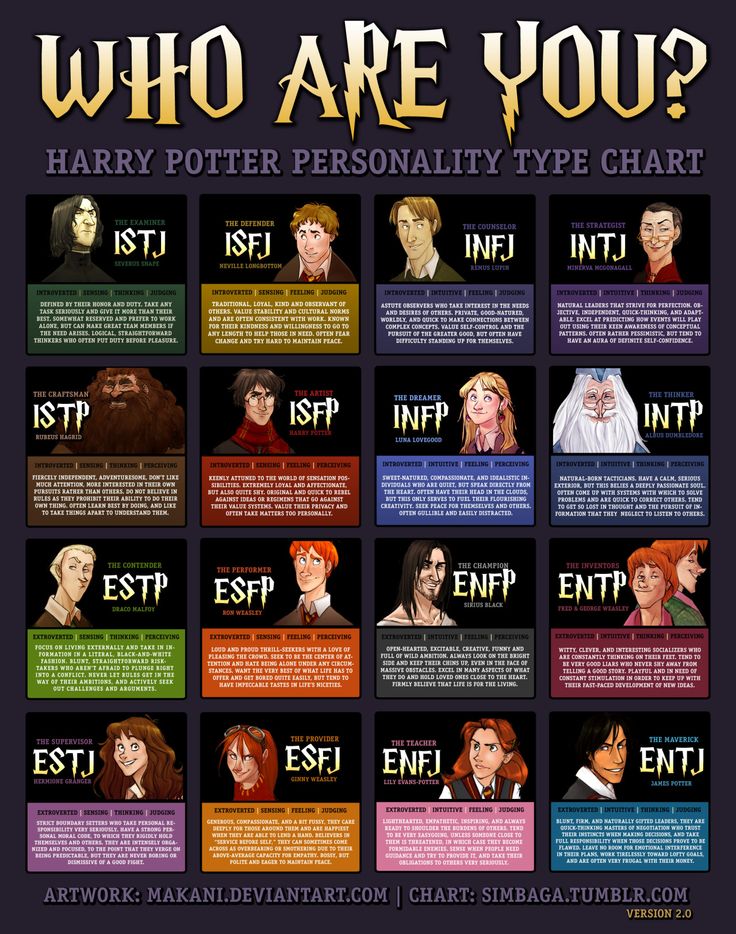Overcome panic disorder
A Guide to Overcoming Panic Disorder
About 10 to 33 percent of people will experience at least one panic attack this year. Even if you’ve never had a panic attack, you probably know what they are like. A pounding heart, sweating, trembling, dizziness, chills.
Only 2.7 percent of people who experience a panic attack in a given year will meet the criteria for panic disorder, which is a type of anxiety disorder characterized by recurrent and often unexpected panic attacks.
An individual with panic disorder also worries about experiencing future panic attacks. In other words, panic disorder is the fear of panic attacks, or the fear of fear. Such anticipatory fear can cause significant distress and negatively impact an individual’s daily life.
How panic differs from anxiety
Panic and anxiety are often used interchangeably, but they refer to different events. Instances of panic are short-lived and intense. They usually last less than 10 minutes because the body can’t stay in such an aroused state for extended periods of time.
A panic attack activates our fight-or-flight response that helps prepare our body to protect us from real or perceived threats. However, panic attacks can occur with or without a threat. Anything from watching a scary movie to exercising to consuming excessive caffeine can trigger the physical changes that may lead to a panic attack.
On the other hand, anxiety is a more future-oriented emotion and usually results from thinking or imagining a negative occurrence in the future. Anxiety can be long-lasting, with a lower level of arousal in the body.
“Anxiety and panic are interrelated, and both contribute to panic disorder,” says Gabe Gruner, LICSW, a psychotherapist at the Psychiatry Outpatient Clinic at Brigham and Women’s Hospital.
Gruner specializes in obsessive compulsive disorder (OCD) and other anxiety disorders. “The anxiety part of the disorder involves worrying about future panic attacks,” he says. “A person with panic disorder may think, ‘When will my next panic attack occur? What will happen?’ They’re anxious about the panic attack, even when they’re not having it. ”
”
The low-level of arousal that comes from anxiety about future panic attacks can trigger an actual panic attack. When you start to worry about panicking during an important meeting, for instance, this anxiety can spur a fear response (fast heart rate, sweaty palms) that can domino into a panic attack. People with panic disorder can find themselves caught in a vicious, self-fulfilling cycle.
About one third of people with panic disorder will show symptoms of agoraphobia, the fear of public or enclosed places where escape might be difficult. People with panic disorder show signs of agoraphobia when they begin to avoid situations that they associate with panic or anxiety. An individual with agoraphobia might be afraid to visit the supermarket, ride an elevator or train, or even leave their house.
Anxiety sensitivity is a risk factor for panic disorder
Most people experience some level of nervousness before a date or a presentation. In fact, it would probably feel strange if you delivered a presentation to your colleagues and didn’t experience an increase in heart rate.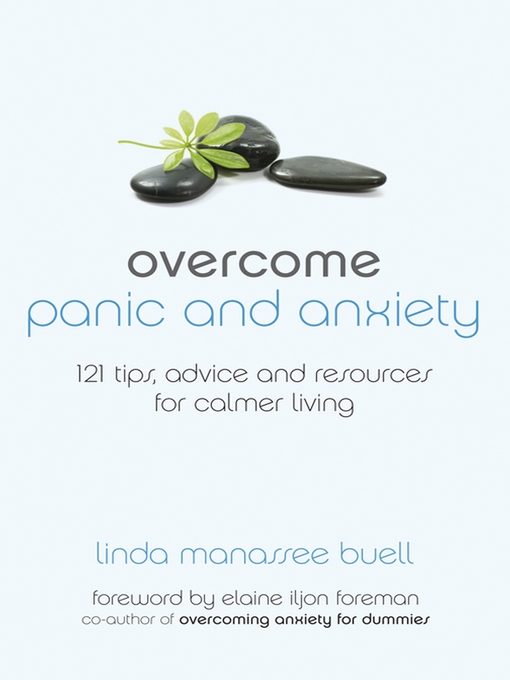 But why do some people have panic attacks while others experience only subtle arousal?
But why do some people have panic attacks while others experience only subtle arousal?
“The underlying mechanism that drives panic disorder is called anxiety sensitivity, a phenomenon where an individual becomes afraid of their bodily sensations,” explains Gruner.
When people have high anxiety sensitivity, they can mistake natural bodily sensations as harmful physical health symptoms, and this can lead to more anxiety and trigger panic attacks. For instance, a person’s increased heart rate might cause them to worry about an impending heart attack. A feeling of losing control might make them afraid that they are mentally unstable, or “losing their mind,” so to speak.
Most psychologists agree that anxiety sensitivity is not hereditary, but rather learned from personal experiences. “Your mind and body learn to respond to internal changes as if they were a threat,” says Gruner.
The process of learning to fear bodily sensations is called interoceptive conditioning.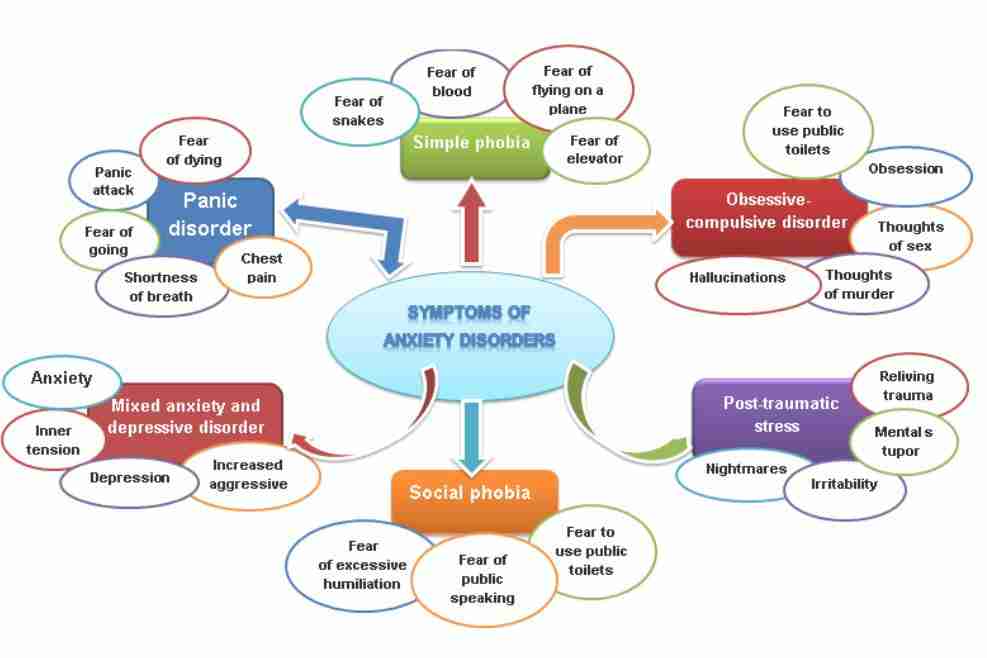 During the day, we all experience natural physiological changes. It’s possible to condition oneself to be overly sensitive to even slight bodily changes, such as a natural increase in heart rate, so that panic attacks become a conditioned response to these changes.
During the day, we all experience natural physiological changes. It’s possible to condition oneself to be overly sensitive to even slight bodily changes, such as a natural increase in heart rate, so that panic attacks become a conditioned response to these changes.
“Some people can experience nocturnal panic attacks for this reason, even without having a nightmare. It appears as if there’s no trigger, but the trigger is these slight body changes,” says Gruner.
Fortunately, anxiety sensitivity is highly treatable and can be greatly improved through certain types of therapy.
The factors that can lead to panic disorder
The following three factors contribute to interoceptive conditioning, higher anxiety sensitivity and development of panic disorder.
- Biological vulnerability. A genetic predisposition to certain personality styles, such as negative affect, contributes to the development of anxiety.
- Psychological vulnerability.
 Early developmental experiences can make certain individuals more likely to experience anxiety, especially if they grew up in controlled environments without opportunities to explore threatening situations.
Early developmental experiences can make certain individuals more likely to experience anxiety, especially if they grew up in controlled environments without opportunities to explore threatening situations. - A specific psychological experience. A negative experience with an illness may cause a person to fear certain symptoms associated with that condition. Also, an individual may fear an illness if a family member modeled the illness as something to fear.
Gruner says that panic disorder often starts with an unexpected panic attack that surprises the person. They might have a panic attack while driving, in a parking lot, on a plane—somewhere where it could have severe consequences to have a panic attack and also where the attack seems unwarranted based on the situation.
“The first panic attack can be very disconcerting, and then an individual can fear that it may happen again,” says Gruner.
If you think you have panic disorder, self-educate and seek professional help
Many individuals with panic disorder realize they have the disorder after a trip to the emergency room (ER), as panic attack symptoms can easily be mistaken for a heart attack or stroke.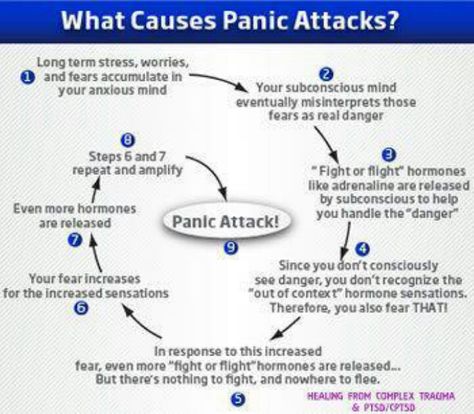 An ER can only offer short-term relief or provide a referral to mental health services.
An ER can only offer short-term relief or provide a referral to mental health services.
Many people who are concerned about panic disorder visit their primary care provider (PCP). Unfortunately, according to Gruner, PCPs can sometimes mistreat panic disorder by prescribing benzodiazepines, such as lorazepam (Ativan) or klonopin (Clonazepam). However, current research shows that ‘benzos’ are a counterproductive long-term treatment approach.
“Benzodiazepines can reduce your anxiety in the short-term, but people can become dependent on them to the point where they don’t feel safe without it. They usually attribute progress to the benzo, so it can make treatment progress difficult,” says Gruner.
Gruner advises individuals to be wary if their PCP prescribes benzodiazepines. “There is increased awareness among PCPs now with the problem of prescribing benzos to people with panic disorder, but it’s not perfect,” says Gruner. “So, it’s worth educating yourself about effective treatment before meeting with your PCP.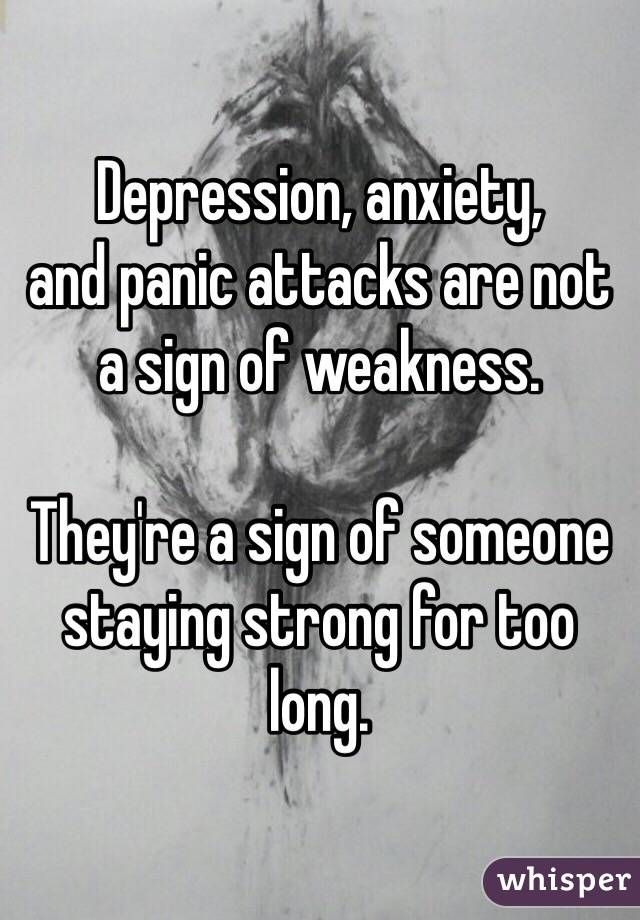 ”
”
Ideally, a PCP would recommend a therapist or psychiatrist. A cognitive behavioral therapist who has experience with anxiety disorders is an ideal choice.
Cognitive Behavioral Therapy is 70 to 90 percent effective as a treatment for panic disorder
Panic disorder is one of the most treatable anxiety disorders. The prevailing treatment is cognitive behavioral therapy (CBT). A new offshoot of CBT, known as Acceptance and Commitment Therapy (ACT), has also been found effective in treating panic disorder. Psychologist Steven Hayes developed ACT in part as a way to treat his own panic disorder. This form of therapy uses acceptance and mindfulness techniques to change how you relate to your physical sensations of anxiety and anxiety itself.
“CBT is an incredibly effective treatment for panic disorder. Seventy to ninety percent of people who undergo CBT will get better,” says Gruner.
A key part of CBT in treating panic is a method called interoceptive exposure, in which the person deliberately confronts the unpleasant physical sensations that are causing anxiety.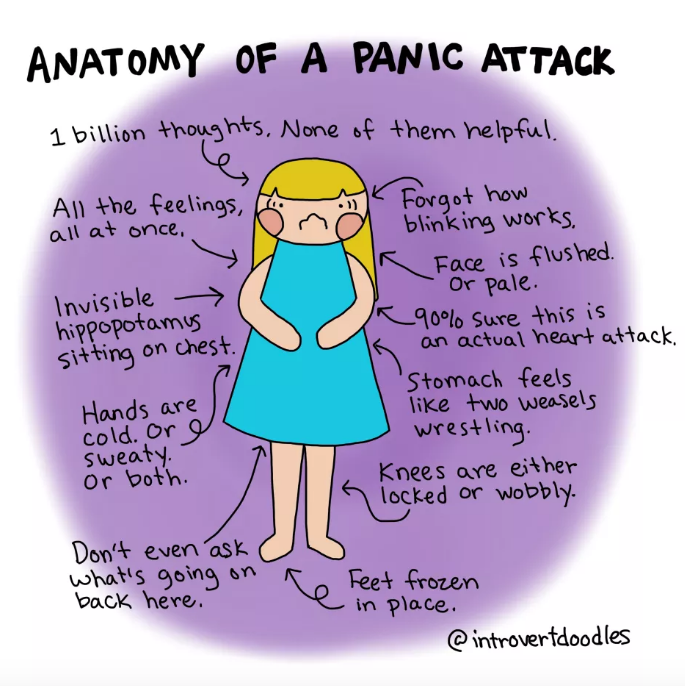 People become more sensitive to these sensations because they fear and avoid them, so facing the sensations and learning that they are not dangerous can lower anxiety sensitivity.
People become more sensitive to these sensations because they fear and avoid them, so facing the sensations and learning that they are not dangerous can lower anxiety sensitivity.
CBT sessions are usually conducted on a weekly basis and last for around 12 to 16 sessions. The treatment tends to show long-lasting results, and relapse is uncommon.
Selective serotonin reuptake inhibitors (SSRIs) are also often used to treat depression and anxiety disorders, with or without CBT. These drugs can be effective, but CBT has been found to be a longer-lasting treatment than SSRIs.
Therapy isn’t always covered by insurance. Because of this, people with panic disorder can live with a highly treatable disorder and not know how to treat it. If you’re in this situation, visit such websites as Anxiety and Depression Association of America, Association for Behavioral and Cognitive Therapies, or Association for Contextual and Behavioral Science to find self-help materials or tools to help find a therapist.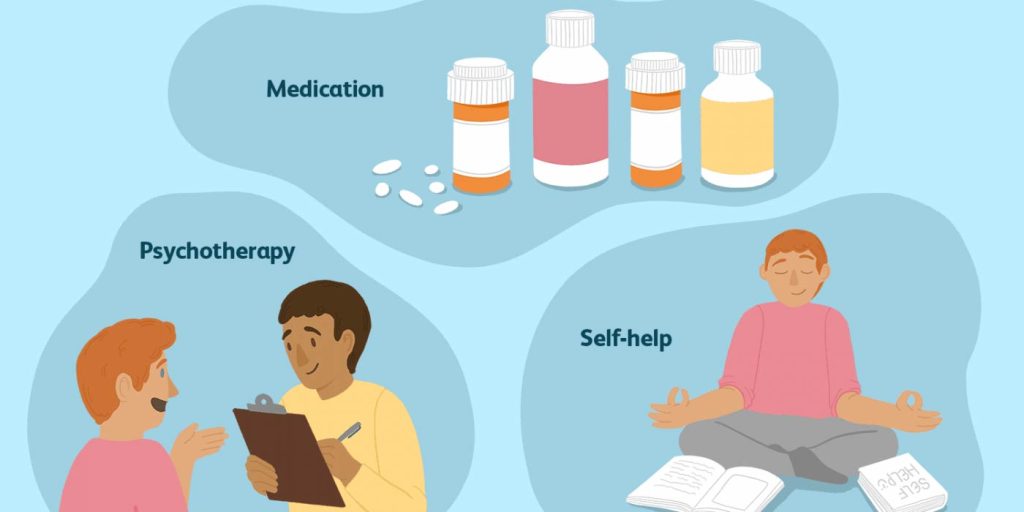
What do I do if I’m having a panic attack?
With or without panic disorder, panic attacks are common. And there’s a big misconception around dealing with them, Gruner explains.
“The most common advice people hear when they’re experiencing a panic attack is to take deep breaths, think positively, and try to calm down,” he says.
However, trying to control anxiety in these ways can backfire. Struggling to prevent a panic attack can have a paradoxical effect and actually cause a panic attack.
During a panic attack, a person should do the counterintuitive thing: let go of control and allow the panic attack to run its course.
It can also be useful to remind yourself that you can’t die from a panic attack, and that it’s your body’s normal, natural reaction, which is not dangerous.
How to deal with panic attacks
A panic attack is a feeling of sudden and intense anxiety.
Panic attacks can also have physical symptoms, including:
- shaking
- feeling disorientated
- nausea
- rapid, irregular heartbeats
- dry mouth
- breathlessness
- sweating
- dizziness
The symptoms of a panic attack are not dangerous, but can be very frightening.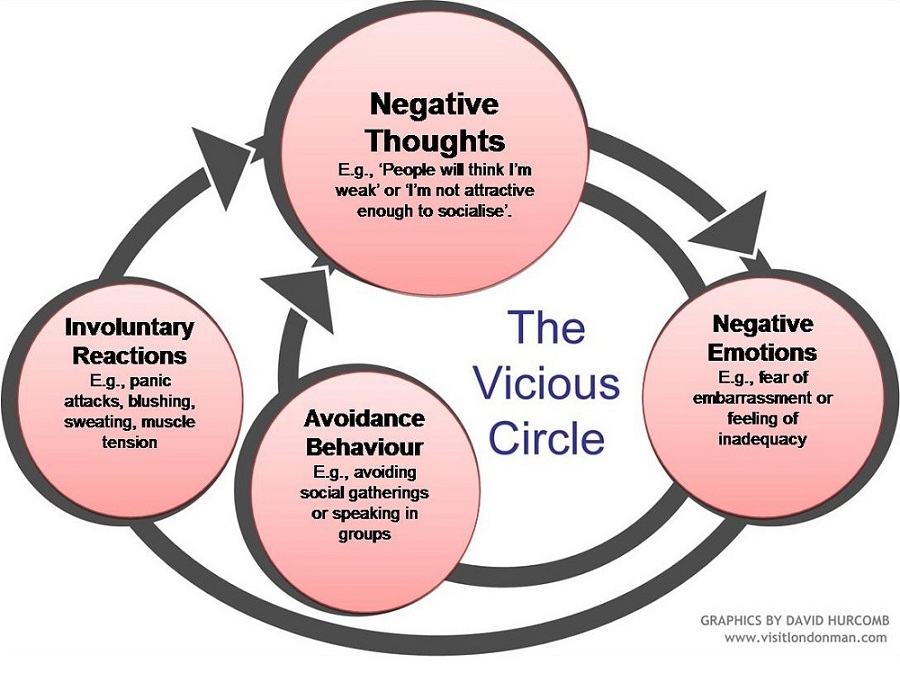
They can make you feel as though you're having a heart attack, or that you're going to collapse or even die.
Most panic attacks last somewhere from 5 minutes to half an hour.
How to handle a panic attack
Professor Paul Salkovskis, Professor of Clinical Psychology and Applied Science at the University of Bath, says it's important not to let your fear of panic attacks control you.
"Panic attacks always pass and the symptoms are not a sign of anything harmful happening," he says. "Tell yourself that the symptoms you're experiencing are caused by anxiety."
He says don't look for distractions. "Ride out the attack. Try to keep doing things. If possible, it's important to try to remain in the situation until the anxiety has subsided."
"Confront your fear. If you don't run away from it, you're giving yourself a chance to discover that nothing's going to happen."
As the anxiety begins to pass, start to focus on your surroundings and continue to do what you were doing before.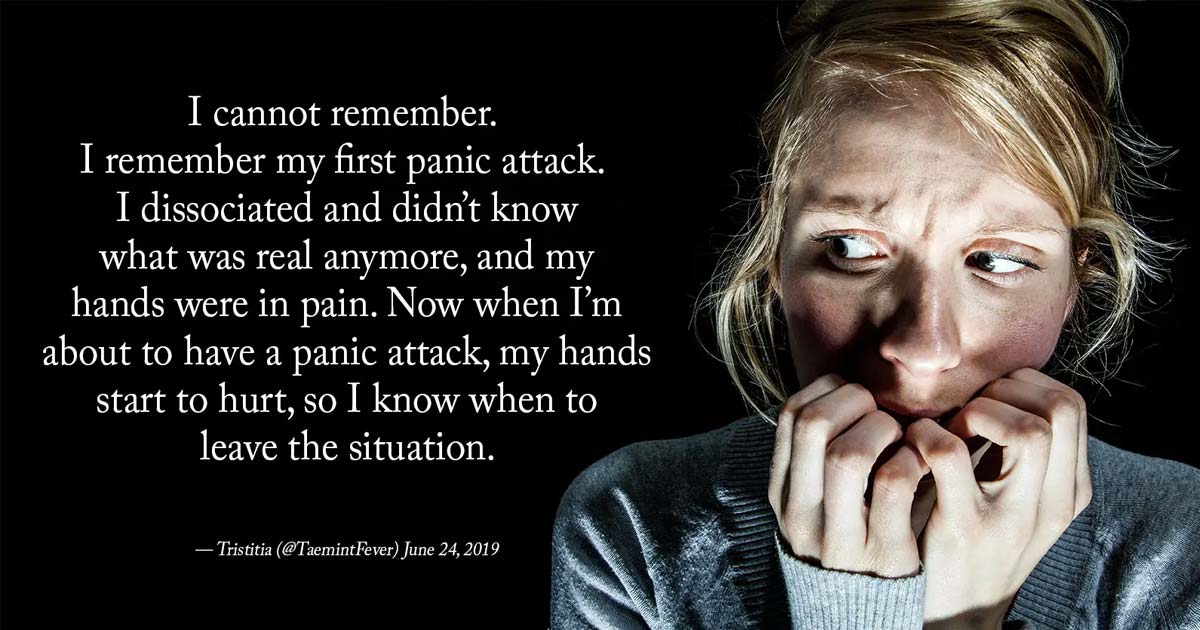
"If you’re having a short, sudden panic attack, it can be helpful to have someone with you, reassuring you that it will pass and the symptoms are nothing to worry about," says Professor Salkovskis.
Breathing exercise for panic attacks
If you’re breathing quickly during a panic attack, doing a breathing exercise can ease your other symptoms. Try this:
- breathe in as slowly, deeply and gently as you can, through your nose
- breathe out slowly, deeply and gently through your mouth
- some people find it helpful to count steadily from 1 to 5 on each in-breath and each out-breath
- close your eyes and focus on your breathing
You should start to feel better in a few minutes. You may feel tired afterwards.
Visit the No Panic website for another breathing exercise to calm panic.
Ways to prevent panic attacks
"You need to try to work out what particular stress you might be under that could make your symptoms worse," says Professor Salkovskis.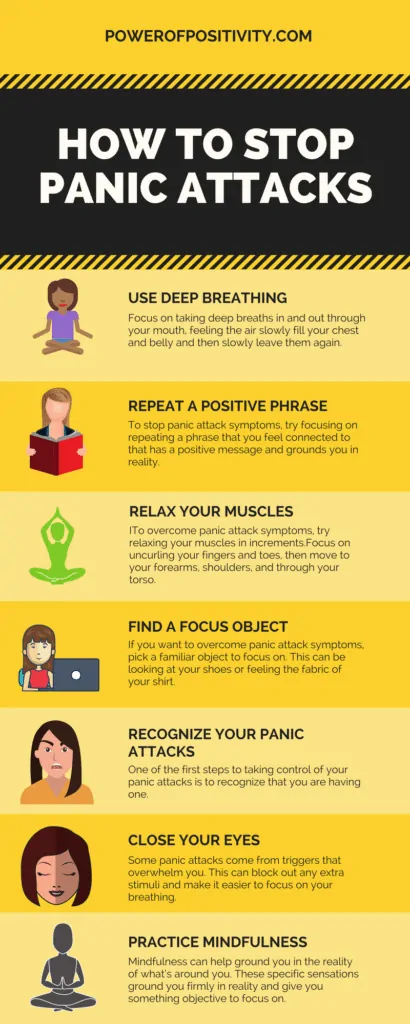 "It's important not to restrict your movements and daily activities."
"It's important not to restrict your movements and daily activities."
Do
- practice breathing exercises every day to help prevent panic attacks and relieve them when they happen
- practice regular exercise, especially aerobic exercise, to help you to manage stress levels, release tension, improve your mood and boost confidence
- eat regular meals to stabilise your blood sugar levels
- avoid caffeine, alcohol and smoking – these can make panic attacks worse
- try a panic support groups to get useful advice about how to manage your attacks – your GP can put you in touch with groups in your area
- try cognitive behavioural therapy (CBT) to identify and change the negative thought patterns that are feeding your panic attacks
Is it panic disorder?
If you feel constantly stressed and anxious, particularly about when your next panic attack may be, you may have panic disorder.
People with panic disorder may avoid situations that might cause a panic attack. They may also fear and avoid public spaces (agoraphobia).
"There's no quick fix, but if your attacks are happening time after time, seek medical help," says Professor Salkovskis.
Read more about panic attacks, including personal stories, at See Me Scotland
Source: Health Scotland - Opens in new browser window
Last updated:
05 January 2023
How can we improve this page?
Help us improve NHS inform
Don’t include personal information e.g. name, location or any personal health conditions.
Email Address e.g. [email protected]
Message Maximum of 500 characters
Community content from Health Unlocked - This will open in a new window.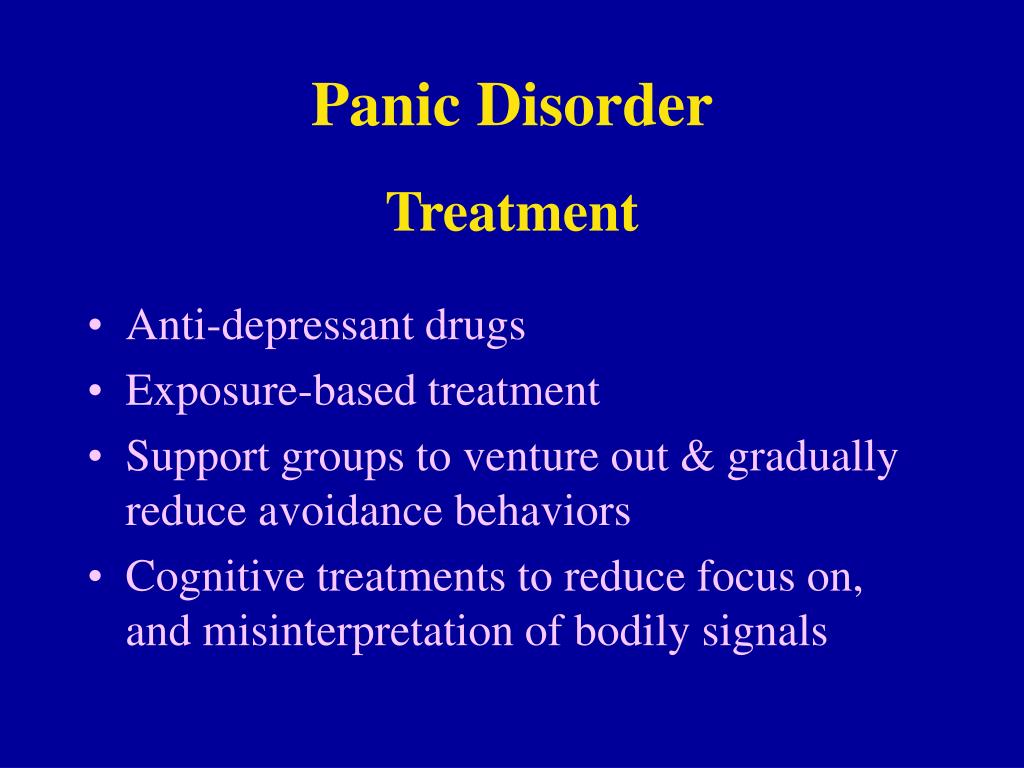
Search for anxiety and panic services
Enter a place or postcodePanic attacks and anxiety disorders
Sometimes a panic attack or unreasonable anxiety visits a person only once, and then does not recur. It happens that the problem manifests itself several times, and also disappears on its own. However, if you regularly encounter such disorders, you should not wait until they go away on their own, because this may not happen.
ACME Center has been helping patients overcome panic attacks and anxiety disorders for over 10 years. Using an integrated approach, we find the root cause and eliminate it, returning patients to a calm and comfortable life.
What are panic attacks? Normally, these states occur due to ongoing events; this is a normal reaction of the body to the stress experienced, which allows you to instantly mobilize forces to overcome it.
 Fear, panic is a reaction to a sudden threat. Anxiety, in turn, is associated mainly with the expectation of a dangerous event.
Fear, panic is a reaction to a sudden threat. Anxiety, in turn, is associated mainly with the expectation of a dangerous event. But sometimes these states arise completely without reason, pursuing a person in situations where there is not a single reason for fears and worries.
This anxiety disorder is expressed by the following symptoms:
- Unreasonable fear or anxiety,
- insomnia, the inability to relax,
- pain, pressure in the chest,
- Dizziness
- Pre-syncope.
While these sensations normally occur during stress, in anxiety disorders they may appear suddenly, and the manifestations may be more severe.
Panic disorder is associated with the occurrence of panic attacks, psychophysical distress in the complex. In some cases, with a high intensity of the attack, a person can commit suicidal acts. Often, panic attacks are combined with other mental disorders, representing a complex disorder - depressive, post-traumatic.
In some cases, with a high intensity of the attack, a person can commit suicidal acts. Often, panic attacks are combined with other mental disorders, representing a complex disorder - depressive, post-traumatic.
Doctors - there are three types of panic attacks:
- Spontaneous - characteristic of panic personality disorder, occurring suddenly and without reference to circumstances. A person may wake up from a panic attack that began in a dream. There is no binding to a place, circumstances, situations.
- Situational. Panic disorder can manifest itself in some specific situations, without fear of a specific place or process. Sometimes a person experiences a panic attack just by walking in the park. Such attacks can become aggravated for periods or vice versa, subside.
- Specific. With these attacks, a person reacts to specific situations. So, a patient with social phobia may experience panic if necessary to speak with the seller when it comes to his turn.

Anxiety syndrome is common among the population, it is typical for more than 13 percent of Russians. Panic attacks are also quite common. But these phenomena are curable, you can get rid of them. There are a number of techniques that allow you to forget about the problem forever.
Treatment of panic attacks and anxiety disorders
Panic attacks can worsen over time, leading to suicidal attempts, resulting in heart attacks and other serious consequences. Anxiety disorders are also not safe, they create a huge burden on the body, on the psyche and nervous system of a person, provoking other diseases. With these painful manifestations, as well as with any others, it is worth fighting in a timely manner, because all the possibilities for this exist today.
Doctors emphasize that complete and lasting relief is achieved by lowering the level of anxiety over a long period of time. At the same time, stabilization of the autonomic nervous system is achieved, the hypothalamus ceases to come into an excited state, adrenaline in the blood falls.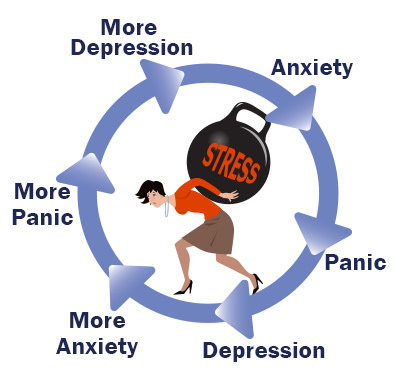 A person not only parted with the symptoms of the disease, but also experiences general comfort and tranquility. His performance improves.
A person not only parted with the symptoms of the disease, but also experiences general comfort and tranquility. His performance improves.
In order to receive a full-fledged treatment, it is necessary to consult a psychotherapist. These problems relate specifically to the sphere of the psyche, and therefore it makes no sense to isolate some part of the symptoms and refer to other specialists with it - for example, to detail only the sensations in the heart area, and contact a cardiologist.
Antipsychotics are also prescribed for severe cases of panic disorder. They are taken for a short period of time in order to suppress excessive symptoms - in this case, complete relief from the symptoms of a vegetative nature does not occur, and therefore it is necessary to use other categories of drugs. Tricyclic antidepressants may be prescribed.
Psychocorrection or hypnotic influence in panic disorder are of an auxiliary nature. These measures do not remove vegetative manifestations, but they allow you to endure the next attack more calmly, realizing that this does not threaten death.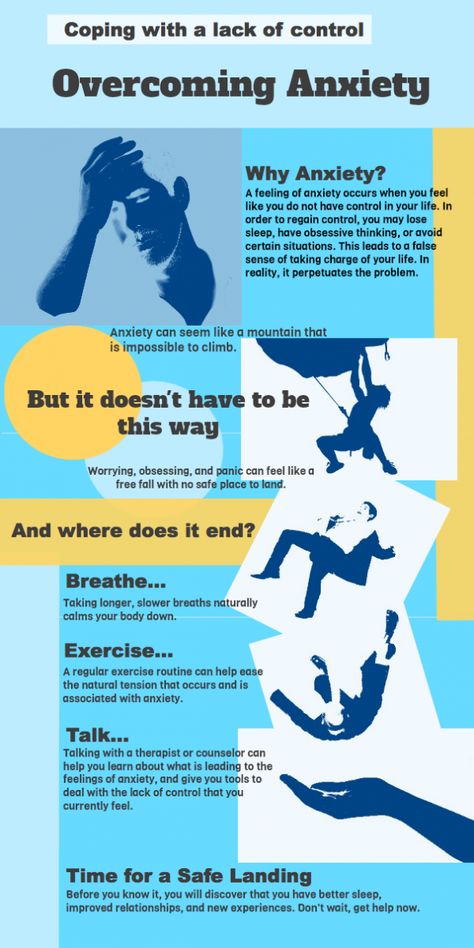 The effectiveness of the techniques is manifested only in mild forms of disorders, which often go away on their own even without it. However, activities aimed at relaxation and peace, such as meditation, spa visits or yoga, do help reduce the severity of symptoms. And therefore, psychotherapeutic techniques can also become part of the course of treatment of these pathologies.
The effectiveness of the techniques is manifested only in mild forms of disorders, which often go away on their own even without it. However, activities aimed at relaxation and peace, such as meditation, spa visits or yoga, do help reduce the severity of symptoms. And therefore, psychotherapeutic techniques can also become part of the course of treatment of these pathologies.
Professional help from doctors allows you to get rid of panic attacks and groundless anxiety - do not delay contacting specialists!
Why patients choose ACME Center
Our specialists have been helping patients with panic attacks for more than 10 years. In our practice, we use proprietary methods and an integrated approach that allows us to most effectively carry out rehabilitation.
Tired of panic attacks and want to return to a calm life and healthy sleep? Call right now at +7 (495) 792-1202 and we will help you get back to a comfortable lifestyle!
"X-Clinic" article - Symptoms of panic attacks and how to deal with them The editors of WMJ.
 ru talked to a psychotherapist and learned everything about panic attacks firsthand. Details - in our material!
ru talked to a psychotherapist and learned everything about panic attacks firsthand. Details - in our material! What is a panic attack
A panic attack is an attack of sudden fear and intense anxiety for no apparent reason. The origins of panic disorder are not entirely clear. However, it is believed that the disease has a genetic predisposition and more often affects the fair sex. Women are more prone to panic attacks and suffer from this disorder 2-3 times more often than men.
Panic attacks cannot lead to death, despite the fact that this is the sensation that most often accompanies them. The more frequent attacks occur, the worse the quality of life becomes. People who have repeatedly experienced panic attacks become increasingly anxious and subconsciously try to avoid places or situations where and when they succumbed to fear. Those who have ever experienced an attack at night, subsequently face sleep disorders.
What are the symptoms of a panic attack
A panic attack is a case of an attack of fear with a sense of imminent death or anxiety, accompanied by certain symptoms.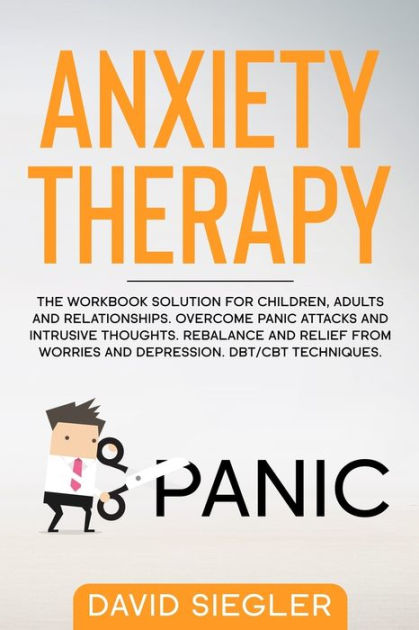 Most often, these include: rapid heartbeat and pulse, sweating, chills or a feeling of heat, tremors, shortness of breath and suffocation, dizziness, fainting, fear of death, and others. If 4 of the symptoms listed above are present, we can talk about an attack of a panic attack.
Most often, these include: rapid heartbeat and pulse, sweating, chills or a feeling of heat, tremors, shortness of breath and suffocation, dizziness, fainting, fear of death, and others. If 4 of the symptoms listed above are present, we can talk about an attack of a panic attack.
What to do in case of a panic attack
The most important thing to do during a panic attack is to shift your attention. Any method is fine for distraction. If the attack caught you in a public place, then you can clench and unclench your fists, rub your earlobes or step from foot to foot. If the panic caught you by surprise at home, try turning on the music, start doing household chores: washing dishes, dusting. Any activity that involves muscle work and requires attention will do.
Since a panic attack is accompanied by a rapid heartbeat and a feeling of stuffiness, it will not be superfluous to take a couple of sips of water and concentrate on breathing. It is best to learn a few techniques that will quickly relieve tension.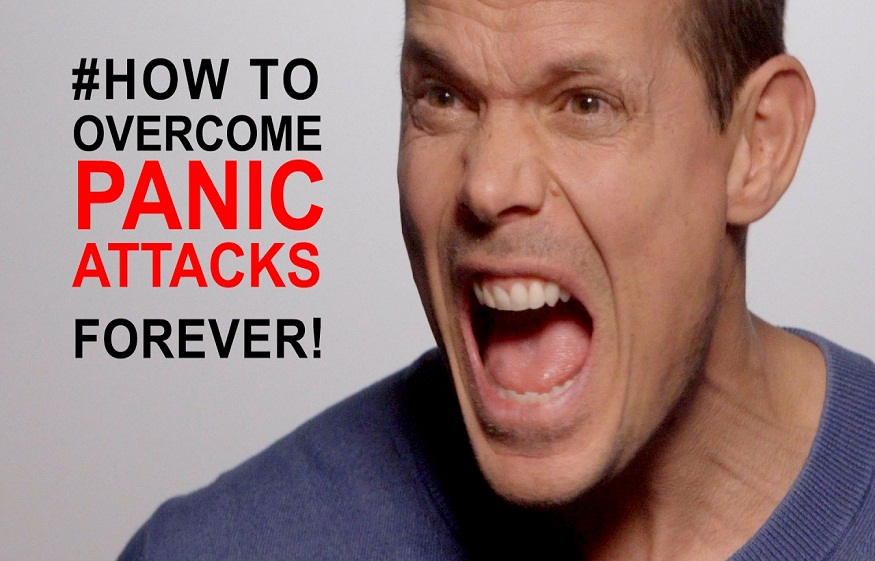 In case of an attack, start with an exhalation - slow it down, and the pulse will also slow down. The ratio of the length of inhalation and exhalation should be 1:2. You can experiment and choose the technique that will help you. A smartphone can also help to distract from panic. Games, social networks - all this will switch attention and distract from a panic attack.
In case of an attack, start with an exhalation - slow it down, and the pulse will also slow down. The ratio of the length of inhalation and exhalation should be 1:2. You can experiment and choose the technique that will help you. A smartphone can also help to distract from panic. Games, social networks - all this will switch attention and distract from a panic attack.
How normal anxiety differs from a panic attack
The mechanism that triggers a panic attack is no different from what causes ordinary anxiety - both are psychophysical reactions to danger. The difference is that a panic attack is a reaction to danger in the absence of danger. Nevertheless, a false alarm triggers the same cascade of reactions as a normal alarm - the sympathetic system is activated, adrenaline is released.
A panic attack can occur against the background of excessive physical exertion, overwork and exhaustion, as well as against the background of the abuse of stimulants and alcohol. In addition, stress and unresolved conflict situations can provoke an attack. Lack of understanding of one's own experiences and feelings, a tendency to avoid negative emotions and ignore them also increase vulnerability to panic disorder.
In addition, stress and unresolved conflict situations can provoke an attack. Lack of understanding of one's own experiences and feelings, a tendency to avoid negative emotions and ignore them also increase vulnerability to panic disorder.
How to prevent a panic attack from turning into a panic disorder
Panic disorder is characterized by a number of symptoms, one of which is a panic attack. In order to make a diagnosis of "panic disorder", it is necessary that panic episodes manifest themselves constantly for a month and are not associated with threats, dangers and previous diseases. In addition, attacks should be accompanied by the following symptoms: anxiety about the repetition of attacks, loss of self-control, a sharp change in behavior.
How to treat panic attacks and when to see a specialist
Seeing a specialist for recurring panic attacks is a must. Therapy is selected individually and, as a rule, includes psychotherapeutic work and drug therapy.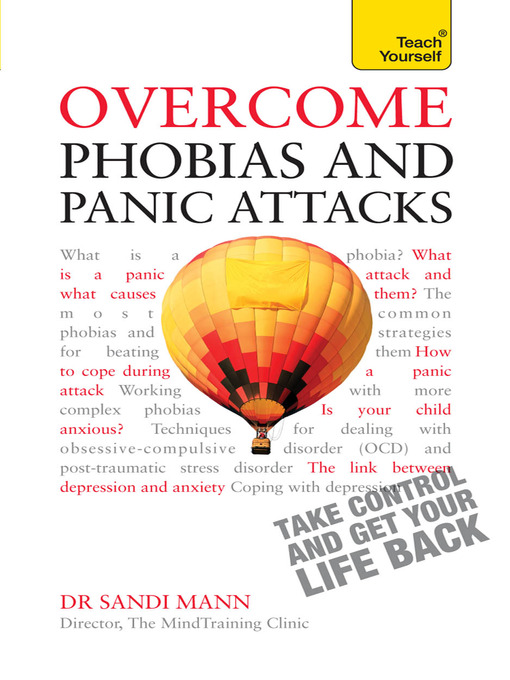 Psychotherapy implies a variety of techniques aimed at understanding and understanding the causes of problems, learning how to deal with the symptoms of the disease, methods of relaxation. Psychotherapy can take place in the form of individual meetings with a psychotherapist or in the form of group sessions with other patients. Drug therapy for panic disorder is carried out with various drugs that help reduce anxiety and fear. Appointment, correction of dosages and cancellation of treatment must be carried out under the supervision of a physician.
Psychotherapy implies a variety of techniques aimed at understanding and understanding the causes of problems, learning how to deal with the symptoms of the disease, methods of relaxation. Psychotherapy can take place in the form of individual meetings with a psychotherapist or in the form of group sessions with other patients. Drug therapy for panic disorder is carried out with various drugs that help reduce anxiety and fear. Appointment, correction of dosages and cancellation of treatment must be carried out under the supervision of a physician.
Modern neurotechnologies can also help in the treatment of panic attacks. Neurofeedback training methods have been developed for patients with panic disorder. During trainings, patients learn to manage their emotional state, they form new neural connections, and the level of anxiety decreases. In addition to professional help, lifestyle plays an important role in the treatment and prevention of panic attacks. Try not to abuse alcohol and caffeine, rest more, go in for sports, yoga is better.

